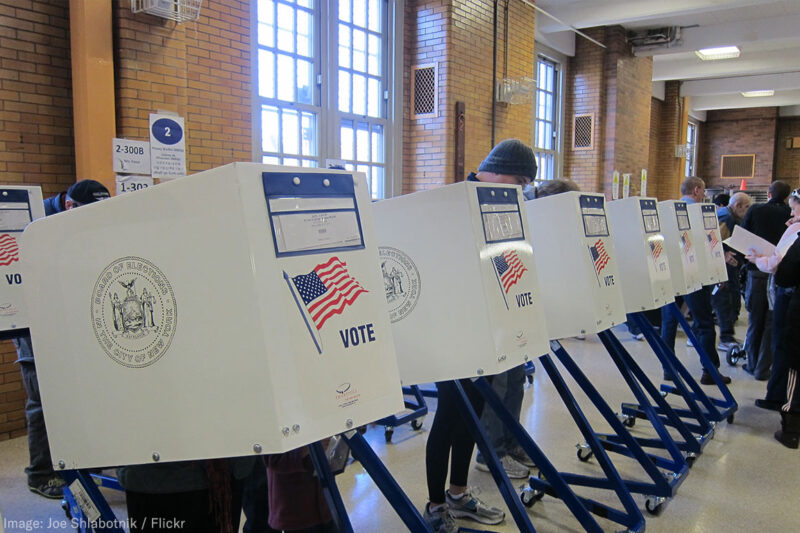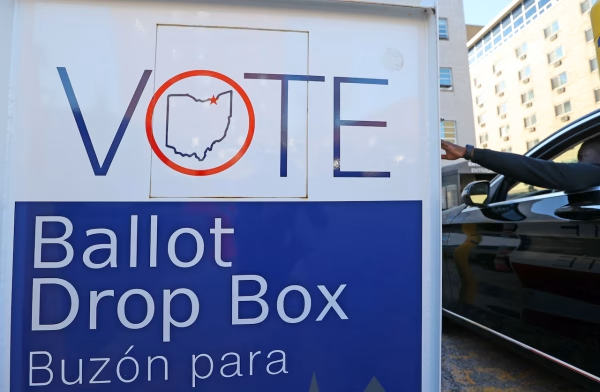Maine Passes ‘People's Veto’ to Overturn Legislature and Preserve Popular New Voting System


On June 12, Maine voters passed a “People's Veto,” rebuffing an attempt by the Maine Legislature to delay implementation of ranked-choice voting. Maine also became the first state in the nation to use ranked-choice voting in a statewide election.
Under Maine’s ranked-choice voting system, voters rank candidates in order of preference. If a candidate receives more than half of the first-choice votes, that candidate wins. If no one receives a majority of first-choice votes, the candidate with the fewest first choices is eliminated. The voters who ranked the eliminated candidate first then have their second-choice votes distributed to other candidates. This continues until a candidate has a majority of the active votes.
Ranked-choice voting ensures that whoever wins an election best reflects the views of the majority of voters. This is an especially salient point in Maine, where in several major elections — including nine out of the last 11 elections for governor — the “winner” received less than 50 percent of the vote. In five of those elections, the winner received less than 40 percent of the vote.

Supporters of ranked-choice voting also say it allows voters to rank their favorite candidate first, without feeling like they are throwing away their vote by choosing a less popular candidate. In addition, advocates believe that ranked-choice voting may reduce negative campaigning. There will now be value in receiving second-place votes, so there is more incentive to avoid negative attacks and focus on the issues.
The path to implementation has been rocky for advocates of ranked-choice voting. In 2016, a majority of Maine voters approved Question 5 — a ballot measure requiring the state to implement ranked-choice voting in the June 2018 primary. However, in a 2017 special session, the Maine Legislature passed a law to delay implementation of ranked-choice voting until 2022 and repeal the law entirely unless a constitutional amendment was passed. Supporters of ranked-choice voting, joined by People Power volunteers, got to work to veto the action of the legislature. These advocates collected the required 61,123 signatures to place the People's Veto on the ballot, and Maine voters passed it.
Maine will now implement ranked-choice voting for all future federal primary and general elections as well as primaries for governor and primaries for state legislative races. Now future elections using ranked-choice voting will reflect the views of, and have the support of, the majority of voters.


